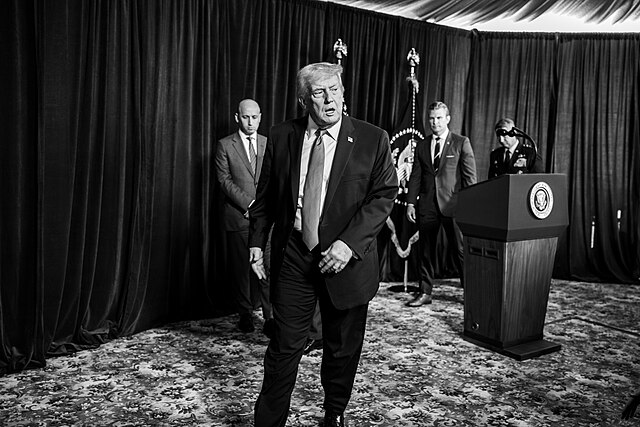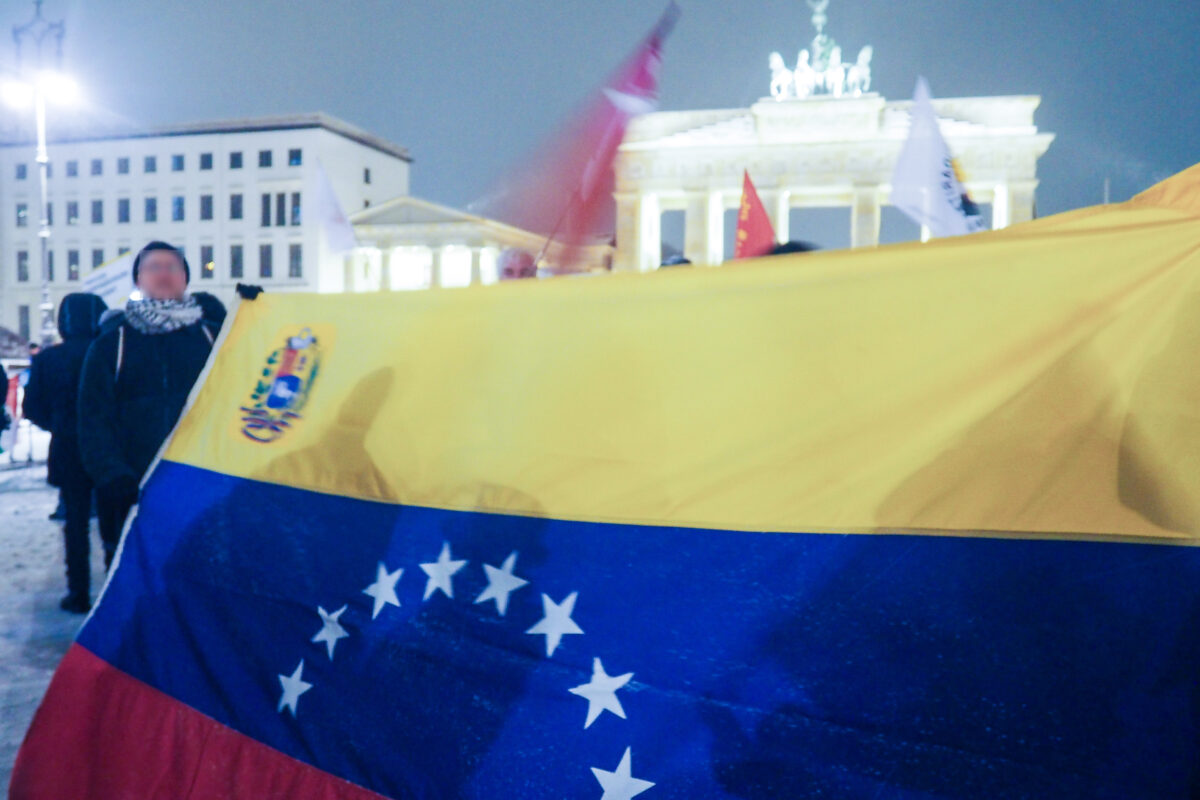It’s been four months since socialist magazine Jacobin declared that the Left was in purgatory. Indeed, there are plenty of reasons for socialists to have a bleak assessment of our political moment. In the past few years, right-wing autocrats have gained a foothold at the helm of several major countries, the climate crisis is intensifying, and income inequality is only increasing, helped along by a global pandemic in its third year. And yet, the Left is making electoral gains in Latin America and France, and militant labor action at Starbucks and Amazon is rocking the US labor landscape. In this decidedly mixed moment, it’s incumbent on socialists to assess our current conditions and formulate strategies for how we can build power.
That’s exactly what the conference Socialism in Our Time in Berlin sought to do. Hosted by Jacobin and Transform! Europe, and headlined by former British Labour Party leader Jeremy Corbyn, the conference drew several hundred socialists to the Oyoun cultural center in Neukölln on June 10 and 11. The organizers posed a central challenge: “Bernie Sanders’ first presidential campaign inspired millions and put socialism back on the map. Seven years later, Trump, COVID-19 and the Ukraine War helped the powers that be regain the upper hand. How can the Left break out of its impasse, organize the broad majority and inspire a vision for social transformation?”
The conference’s speakers, leading thinkers from North America and Europe, offered nuanced and sometimes conflicting answers. However, a common thread emerged: the Left’s urgent task is to merge with the working class. What does this mean, and how does it intersect with other pressing issues like climate and war? Here are three main takeaways. (Note that this article reports on the English-language panels, although a few others were also held in German. Due to space constraints, we can’t report on every speaker, but we encourage readers to check out the conference program and look up their work.)
On war: We need an immediate ceasefire and negotiations in Ukraine, and a positive Left vision for a new security order.
The war in Ukraine loomed large over many speakers’ analysis of the political moment. Jeremy Corbyn dedicated much of his keynote speech to the urgency of ending the Ukraine war. Speakers were quick to point out, however, that that war is one among many – and to make clear that, despite their Left critiques of NATO, Russia’s offensive is illegal and wrong. The panel “Every War Is a Defeat” sought to address the question, “Can we build an anti-war movement fit for the times?”
Corbyn acknowledged that winning any anti-war demands will take a broad-based peace movement that can exert leverage over governments. “Are we just going to be spectators and watch tens of thousands die,” he asked, “or will we skip the killing phase and go to the talking phase? Surely, it’s up to us to put all the political pressure we have.”
What would such a movement demand in 2022? Several speakers, including Corbyn and Transform! Europe board member Walter Baier, gave the same prescription for the war in Ukraine: an immediate ceasefire, peace negotiations, a reimagined security order in Europe, and a reduction of nuclear threat. Corbyn called for an outright ban on nuclear weapons. “Those of us who have declared nuclear weapons an abomination have been declared weak, because we’re not willing to destroy half the world’s population,” he said. “But any nuclear weapon set off will beget another weapon, and another after that, and that will result in universal destruction.”
Baier put forward a vision of a Europe without NATO. “Can NATO become a system of collective security in Europe, as some people believe? NATO can never be part of the solution because it’s part of the problem,” he said. “Any collective system which provides security needs to be universal….Otherwise it’s a military alliance, which NATO undoubtedly is.” And military alliances, he said, rather than leading to peace, usually lead to war. Corbyn echoed this idea, pointing out that a system of military alliances, set off by one triggering event, is what plunged Europe into World War I over a century ago.
What might a new security order look like? Volodymyr Ishchenko, researcher at Freie Universität Berlin, pointed out that the Left has no consensus on a positive vision for international strategy, nor even a robust discussion about it – and this is a glaring omission. “We don’t have our own camp in international policies, our own vision of how the international system should be transformed,” he said. He called for a more sophisticated and concrete strategy for how the Left moves from a world with wars and nuclear weapons to a world without them.
Finally, it wouldn’t be a Left discussion of war without the acknowledgment of the centrality of class. Özlem Demirel, a Member of European Parliament for die Linke, said, “Wars are a result of a weak peace movement, so we have to organize. If we don’t, I don’t see that my children will have the same opportunity I had not to live with wars near them.” The brunt of these wars will affect the working class, who will experience higher inflation and suffering. In these “rich men’s wars, it is always the blood of the poor,” she said. “We need to organize the poor against the wars of the rich.”
On class: It’s still central to our project.
Most speakers brought up class struggle, but the panel most focused on it was “Contemporary Capitalism and Its Gravediggers,” which sought to describe the conditions of capitalism in this political moment, and to answer the question: “What does the global working class look like today, and how can it fight back?”
For New York University professor Vivek Chibber, author of The Class Matrix and The ABCs of Capitalism, conditions may look different, but our project hasn’t changed. “Unless the socialist Left embeds itself in the lives of working people again, there’s no hope for socialism,” he said. A merger between the Left and the working class is still the only way to challenge capital. Critics from inside and outside the Left claim that Marxists focus too heavily on blue-collar workers, at the expense of other segments of the working class, but Chibber said this is a “myth created by the aging New Left.” He defined the working class as anyone who works for a wage in a non-supervisory position, including people in the service sector, factories, and even in banking and finance. As for the fixation on blue-collar workers, he argued, unions and communist or socialist parties at the time of peak labor militancy – the 1930s and 1940s – focused on that sector of the working class because of the conditions of the time, namely a huge manufacturing industry.
What is Chibber’s prescription for labor organizing in 2022? He described today’s capitalism as slow-growth, deindustrialized, and globalized, and today’s workers as more atomized and precarious – and therefore taking on a higher risk if they attempt to organize. Labor organizing, he said, will have to be done outside of manufacturing, in the service sector and in small shops, and it may not be centered on collective bargaining the way it was in the past, but rather in collective agreements in the informal sector, which is harder to organize and doesn’t have the institutional protections that manufacturing had in the 1940s.
He encouraged today’s still-marginal Left not to fall into the assumption that it has the power to map the labor landscape and then go organize in it. The union movement is on the defensive in the Atlantic world, he said, and the Left’s job is to find out where the energy is in organizing in the working class and embed itself there; Starbucks, he said, was an example. Only after doing this can a Left-labor formation figure out where it has leverage against capital (like at Amazon) and fight on that terrain.
On climate: We’ve got to resist the ideology of individual actions and build a movement that’s rooted in the working class.
The climate crisis is inseparable from the other crises capitalism has created, and the conference dedicated a panel to it called “Their Planet and Ours,” featuring British commentator Grace Blakeley and French researcher Gala Kabbaj.
For Blakeley, the question of whether Leftists should focus their efforts on using the state to tackle climate change, or building power outside the state, is a false dichotomy. Liberals tell us politics and economics are separate realms, and the state is a tool for making minimal, market-based interventions to prevent climate change – but, Blakeley said, this ideology can’t stop the climate crisis. “There isn’t this clear distinction between politics and economy, between social movements and the state,” she said. “If we’re going to deliver a Green New Deal, we need to do it now,” by building the community organizations that will be there if and when the Left is able to wield power using the state.
Blakeley did not prescribe just one right course of action for a left-oriented climate movement. Instead, she called for a “multiplicity of projects” and a broad vision that encompassed strategies from disruption and direct action to engaging in elections. “We need to show people that a different way of organizing society is possible. We need to show people it’s possible to win political power…. And everyone will have a different space on that spectrum based on their preferences, based on their background, and that’s fine.”
Kabbaj, meanwhile, named another liberal ideology that our movement will have to counter if we want to stand a chance against climate crisis: the individualization of ecology. The insistence that every person must lead an ethical life based on their consumer choices – “how should I live? Should I keep on taking planes?” – comes straight from the ruling class, she said. Furthermore, this individualization allows the ruling class to stigmatize working-class lifestyles. Instead, our central task is to find a way for the climate movement to connect with the “popular classes” – only then can it wield economic and electoral leverage. In France, she noted, the Greens put forward a vision centered on an individualized, bourgeois ecology, whereas Melenchon’s Left program proposed a project of society that articulated ecology, feminism, anti-racism, and questions of economic equality together. Unsurprisingly, it was this second vision that garnered votes from the working class.
So, how should socialists respond when people ask, “What can I do to stop climate change?” Blakeley’s answer was simple: forget your carbon footprint and join a movement.




